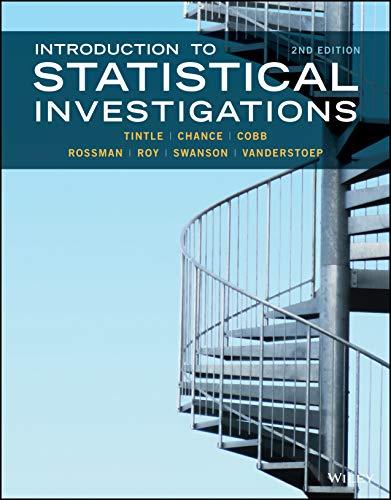Researchers, reporting in Chemical Senses (Roberts et al., 2005), were interested in body odor as it relates
Question:
Researchers, reporting in Chemical Senses (Roberts et al., 2005), were interested in body odor as it relates to genetics. They compared body odor between adult identical twins that were not living together. They had the female identical twins follow a complex hygiene regimen and were told not to come in contact with a variety of odors (garlic, smoke, perfume, etc.) for 24 hours prior to the collection of their odors. They then attached pads to the upper part of their bodies and covered up with a cotton t-shirt before they went to bed. The pads were collected the next morning. Sniffers were then assigned to sniff a pad and try to match it with one of four pads where one was from the identical twin and the other three were from non-relatives. The 113 sniffers correctly matched 42 odors to that of the twin. Answer (a)–(c) to investigate whether the sniffers are more likely than random chance to make a correct match.
a. Let π be the long-run proportion of times a sniffer makes a correct match. Write out the null and alternative hypotheses for this study in symbols.
b. Use the One Proportion applet to find a p-value for this test.
c. Would you say that we have strong evidence that sniffers are more likely than random chance to make a correct match? How are you determining this?
Step by Step Answer:

Introduction To Statistical Investigations
ISBN: 9781119683452
2nd Edition
Authors: Beth L.Chance, George W.Cobb, Allan J.Rossman Nathan Tintle, Todd Swanson Soma Roy





